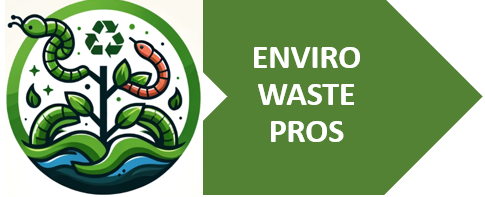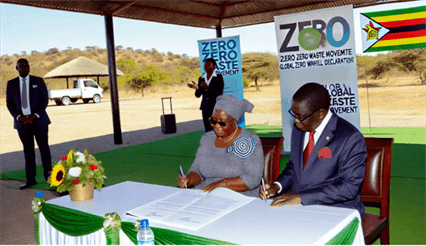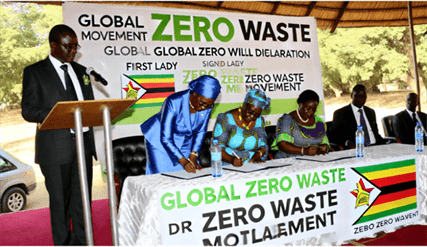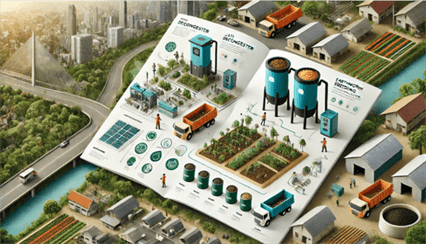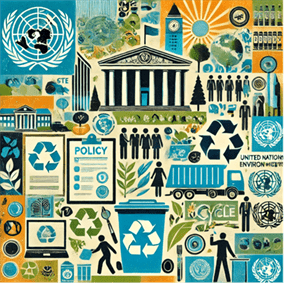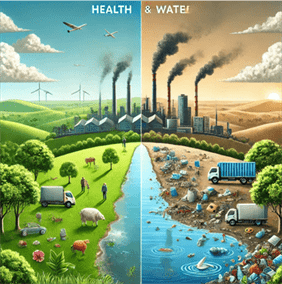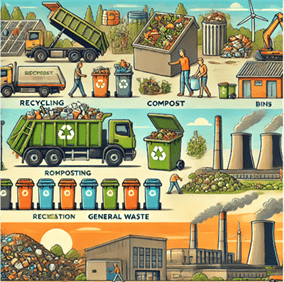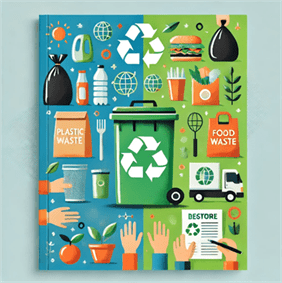From competitions to composting, Zero Waste Innovations in Zimbabwe are revolutionizing waste management. See how the country is going green.
Introduction to Zero Waste Innovations in Zimbabwe
Zimbabwe has embarked on an ambitious journey towards achieving zero waste, implementing a range of innovative initiatives and campaigns. These efforts are transforming the nation’s approach to waste management, recycling, and environmental sustainability. From government-led programs to grassroots movements, Zimbabwe is making significant strides in reducing waste and promoting a circular economy.
The Zero Waste Movement in Zimbabwe
Launching the Zero Waste Movement Chapter
Zimbabwe’s commitment to zero waste gained momentum with the launch of the Zero Waste Movement Chapter. This initiative was inspired by a significant event:
- First Lady Dr. Auxillia Mnangagwa signed the Global Zero Waste Goodwill Declaration
- The declaration aims to promote sustainable waste management practices nationwide
- It marks Zimbabwe’s alignment with global zero waste efforts
Objectives of the Zero Waste Movement
- Raise awareness about waste reduction
- Encourage sustainable consumption patterns
- Promote recycling and composting initiatives
- Foster innovation in waste management technologies
Innovative Zero Waste Projects in Zimbabwe
The Clean Cities Competition
Mashonaland West province has introduced an innovative approach to encourage sustainable waste management:
Table 1: Clean Cities Competition
| Initiative | Purpose | Expected Outcomes |
|---|---|---|
| Clean Cities Competition | Encourage local authorities to excel in waste reduction and sustainable environmental management | – Improved waste management strategies – Increased recycling rates – Cleaner urban environments |
This competition serves as a catalyst for innovation in municipal waste management, pushing cities to develop and implement effective zero waste strategies.
The Jati Earthworm Breeding Composter: A Game-Changer in Organic Waste Management
One of the most notable zero waste innovations in Zimbabwe is the Jati Earthworm Breeding Composter, developed by ZEF (Zim Earthworm Farms).
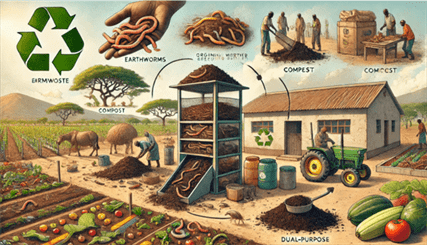
Key Features of the Jati Earthworm Breeding Composter
- Dual-purpose design for earthworm breeding and composting
- Efficient conversion of organic waste into valuable vermicompost
- Scalable solution suitable for various settings
- Promotes sustainable agriculture through organic fertilizer production
Benefits of the Jati System in Zimbabwe’s Zero Waste Journey
- Reduces landfill waste by processing organic matter
- Creates nutrient-rich vermicompost for improved soil fertility
- Offers economic opportunities in waste management and agriculture
- Aligns with government goals for grassroots recycling initiatives
The Jati Earthworm Breeding Composter represents a significant advancement in Zimbabwe’s zero waste efforts, providing a practical and sustainable solution for organic waste management.
Youth-led Recycling Enterprises
Young entrepreneurs in Zimbabwe are at the forefront of zero waste innovations, creating businesses focused on waste collection and recycling:
- Wezesha Initiative in Bulawayo
- Produces brooms from waste materials
- Demonstrates creative repurposing of waste into useful products
- Youth-led Waste Collection Services
- Provide garbage and recyclable material collection for households and corporations
- Create employment opportunities while addressing waste management challenges
These initiatives not only contribute to waste reduction but also foster a culture of entrepreneurship and environmental responsibility among Zimbabwe’s youth.
Organic Fertilizer Production from Biodegradable Waste
Innovative approaches to zero waste in Zimbabwe include the production of organic fertilizer from biodegradable materials. This process offers multiple benefits:
- Reduces organic waste sent to landfills
- Creates a non-contaminating agricultural input
- Promotes the production of nutritious food
- Contributes to atmospheric decarbonization
Government and Institutional Support for Zero Waste Innovations
Environmental Management Agency (EMA) Initiatives
The Environmental Management Agency (EMA) plays a crucial role in promoting zero waste innovations in Zimbabwe:
- Encourages eco-innovation as a catalyst for industrialization and trade
- Promotes environmentally safe and socially acceptable innovations
- Focuses on ensuring sustainability in waste management practices
Government Commitment to Zero Waste
The Zimbabwean government has pledged support for waste recycling initiatives, aiming to create a more inclusive and sustainable waste management sector. Proposed actions include:
- Investing in the recycling value chain
- Improving waste collection frequency by local authorities
- Funding grassroots recycling initiatives
- Enforcing environmental by-laws
- Encouraging comprehensive environmental plans at the local level
These government-led efforts aim to create a supportive ecosystem for zero waste innovations across Zimbabwe.
Challenges and Opportunities in Zimbabwe’s Zero Waste Journey
Despite the innovative approaches and government support, Zimbabwe faces several challenges in its zero waste efforts:
Certainly, I’ll reformat the tables to make them easier to copy. Here are the updated tables in a more straightforward format:
Table 2: Current Recycling Rates in Zimbabwe
| Waste Type | Recycling Rate | Challenges |
|---|---|---|
| Municipal Waste | 25% | – Limited recycling infrastructure – Need for increased public awareness – Economic constraints |
| Plastic Waste | 15% | – Limited recycling infrastructure – Need for increased public awareness – Economic constraints |
These statistics highlight the significant room for improvement in Zimbabwe’s recycling efforts. However, they also present opportunities for further innovation and development in the zero waste sector.
Community-based Recycling Efforts
Despite the challenges, community-based organizations are actively involved in recycling initiatives:
- Grassroots movements driving local recycling efforts
- Collaboration with neighboring countries for waste processing
- Potential for growth and expansion of local recycling capabilities
The Future of Zero Waste Innovations in Zimbabwe
As Zimbabwe continues its journey towards zero waste, several key areas show promise for future innovations:
- Technology Integration: Incorporating digital solutions for waste tracking and management
- Circular Economy Models: Developing systems that prioritize resource reuse and recycling
- Education and Awareness: Expanding programs to increase public participation in zero waste initiatives
- Policy Development: Crafting supportive legislation to encourage zero waste practices
- International Collaboration: Partnering with global organizations to bring cutting-edge waste management technologies to Zimbabwe.
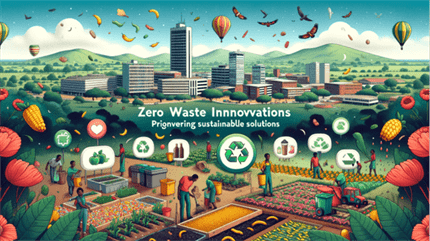
Potential Impact of Zero Waste Innovations
The continued development of zero waste innovations in Zimbabwe has the potential to yield significant benefits:
- Environmental protection and conservation
- Job creation in the green economy sector
- Improved public health through better waste management
- Enhanced national image as a leader in sustainable practices
- Economic savings through resource efficiency
Conclusion: Zimbabwe’s Path to a Zero Waste Future
Zimbabwe’s journey towards zero waste is marked by innovative solutions, community engagement, and government support. From the Jati Earthworm Breeding Composter to youth-led recycling enterprises, the country is demonstrating its commitment to sustainable waste management practices.
While challenges remain, the foundation laid by these zero waste innovations provides a strong platform for future growth and development. As Zimbabwe continues to invest in and support these initiatives, it moves closer to its goal of becoming a zero waste nation, setting an example for sustainable development in Africa and beyond.
By embracing these innovations and continuing to foster a culture of sustainability, Zimbabwe is not just managing waste – it’s transforming it into an opportunity for environmental stewardship, economic growth, and community empowerment. The zero waste journey in Zimbabwe serves as an inspiring model of how developing nations can tackle environmental challenges while promoting sustainable development.
Related Articles:
